Commemorating the 20th Anniversary of Bishop Jean-Baptiste Gourion
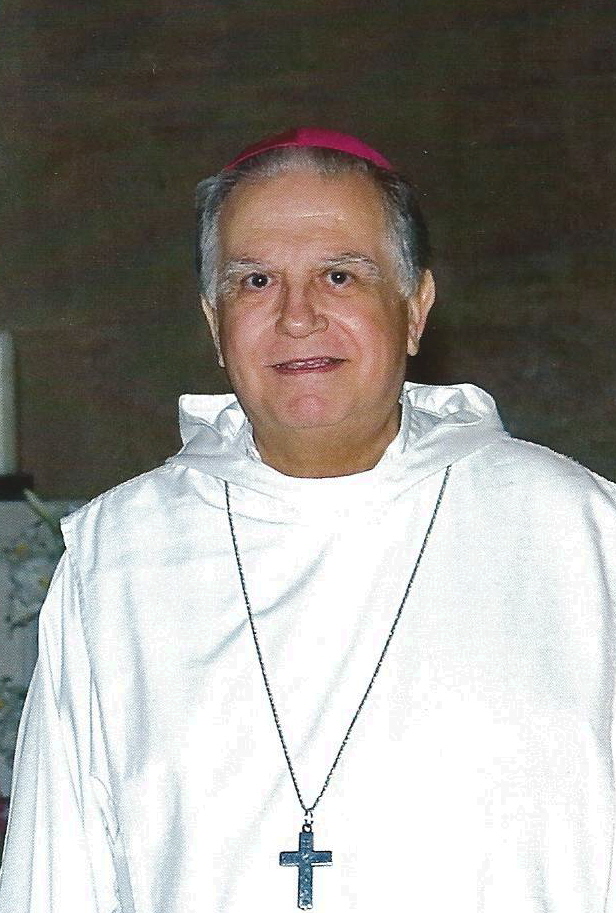
On this day, we remember Bishop Jean-Baptiste Gourion, who passed away on June 23, 2005. Born on October 24, 1934, in Oran, Algeria, to a Jewish family, Gourion's journey to faith and service was remarkable. He converted to Catholicism in 1958 and joined the Benedictine Monastery in 1961. His ordination as a priest followed in 1967
Bishop Gourion's dedication to the Hebrew-speaking Catholic community in Israel was profound. In 1976, he arrived in Israel with two other monks to rebuild the old monastery in Abu Ghosh, eventually becoming its abbot in 1999.
His appointment as Auxiliary Bishop of the Latin Patriarchate of Jerusalem in 2003 by Pope John Paul II marked a significant milestone in his mission to serve the spiritual needs of Hebrew Catholics. Bishop Gourion's contributions were not just administrative but deeply pastoral. He worked tirelessly to bridge cultural and religious divides, fostering a sense of unity and understanding within the diverse community he served. His efforts were instrumental in nurturing the Hebrew-speaking Catholic Vicariate, ensuring that the unique spiritual needs of this community were met with compassion and dedication
As we commemorate the 20th anniversary of his death, we reflect on the enduring impact of Bishop Gourion's life and work. His legacy is a testament to his unwavering faith, his commitment to service, and his love for the people he shepherded. May his memory continue to be a blessing and an inspiration to us all.
You can find more information about Bishop Gourion: HERE.
Here is Fr. Roman's reminiscence about Bishop Jean-Baptiste Gourion:
It was Thursday, June 23, 2005. I was in Poland, at home, on summer vacation before the first year of my theology studies. During those days, I was preparing myself to travel to Ireland to improve my English. After a summer, in theology studies we had to switch from Italian language to English language. So, all the seminarians traveled to different countries to study and improve the new language of study. But for me, this summer was special for another reason. In August of that year, my vows in the Salesian congregation were due to expire and I had to move to become a seminarian of the Latin Patriarchate in Jerusalem, and more precisely, a seminarian of the Work of St James headed by Bishop Jean-Baptiste Gurion, the Patriarch's Vicar for the Work of St James, today the St James Vicariate, who was ordained a bishop on November 9, 2003.
This June I was at home, in Poland. Suddenly, my father's voice came to my ears, asking: "What is the name of your bishop?"
I answered: "Jean-Baptiste Gurion."
"He is dead," my father responded in embarrassment.
I was a little shocked. Here passed away a man whom I had just begun to know, whom I loved and through whom God had opened a new path for me. But I was still a Salesian. My vows were valid until August, and I did not ask to renew them or make final vows. And here passed away a man, a bishop who was the guarantee for me to continue my path to the priesthood. I did not know what to think and to tell the truth, I do not remember when I received the message from Sister Miriam Selz, the bishop's assistant, who informed me that everything was fine, that Fr. Pierbattista Pizzaballa, then the vice-Vicar who later became the Vicar himself and is now the Patriarch of Jerusalem, said that I could return to the Holy Land and that I could continue my path in the Work of St James. I felt relieved.
I knew Fr. Jean-Baptiste Gurion even before he was consecrated bishop, even though I did not belong to any community of the Work of St James. In August 2003, when Fr. Jean-Baptiste received his episcopal nomination, I did not really know what the Work of St James was, what the Kehilot, the Hebrew-speaking communities were. But I heard that Dominicans, Franciscans, and Jesuits work or have worked there. I thought: Sure, the new bishop will also receive one Salesian who, if necessary, will help him and others. But on Saturday, November 1, 2003, months after the beginning of my first year of theological studies, in private prayer in the chapel, I felt that God was calling me to leave the congregation and join the new bishop in order to work with him directly. The next day I went to the prior of the house and told him what I meant. He immediately understood me. That same day I received permission to go to the bishop to get to know him and ask if he would accept me. Of course, it was not easy logistically. Fortunately, before I get to know him personally, I had two opportunities to meet him. On Thursday, November 6th, we seminarians had an archaeological trip. If I remember correctly, we were supposed to go to Hebron, but on that particular day the road was closed. Fr. Vernet, our archaeology professor, suddenly decided to go to Abu Gosh to visit Fr. Jean-Baptiste a few days before his consecration as bishop. For Fr. Jean-Baptiste, these were days of retread. But he received us for a few minutes. I remember him saying that he hoped that one day he would have a group of seminarians like that to help him in his work. And I thought to myself, "Here I am." But I couldn't say it out loud yet.
Of course, a few days later, I received permission from the prior to go to the consecration of Fr. Jean-Baptiste as bishop. I did not know any of the people who gathered in the Church of Our Lady Ark of the Covenant in Kiryat Yearim, just above Abu Gosh. Of the entire ceremony, I remember the moment when Fr. Pierbattista Pizzaballa and Fr. Grzegorz Pawłowski lifted the Gospel over Fr. Jean-Baptiste's head and then the words that the new bishop at the end of the consecration ceremony said in Hebrew. And I had already begun to learn this language and so I have understood everything. Fr. Jean-Baptiste began with these words if I remember correctly: "I am not sure if I understand what I am going to say." And he continued: " At last we have returned home."
After the consecration, I did not stay for the refreshment. I had to return to the seminary. But I soon received permission to visit the new bishop, this time for a private conversation. When I arrived at the monastery in Abu Gosh, I was greeted by a monk who told me to wait for the bishop in a small living room. The things that caught my attention the most when bishop Gourion entered to the room were: a white robe, a zucchetto more pink then purple, his retro-glasses and most notably: his big smile and open arms. Immediately after the hug, we got down to point. What a surprise and joy I had when I heard that I was not his first seminarian. There had already been two others. The second thing we immediately discussed was my vows. The bishop said that it would be better for me to wait until my vows had expired naturally. The truth was that I had only renewed my vows in August and the idea of waiting two years to leave the congregation and join the Kehilot was quite sad to me. But when I returned to the seminary, the prior advised me the same thing. I knew that I could trust these two fathers that God had given me at that moment and I stayed in the congregation.
Over the next two years I was able to meet Bishop Jean-Baptiste a few more times, both privately and during the Communities Days held in his monastery, and in fact through this I began to get to know the new reality that I was soon to fully join, the Kehilot.
Then came Thursday, June 23, 2005, the day of Bishop's Jean-Baptiste Gurion's death. I could not even attend his funeral. I was in Poland...






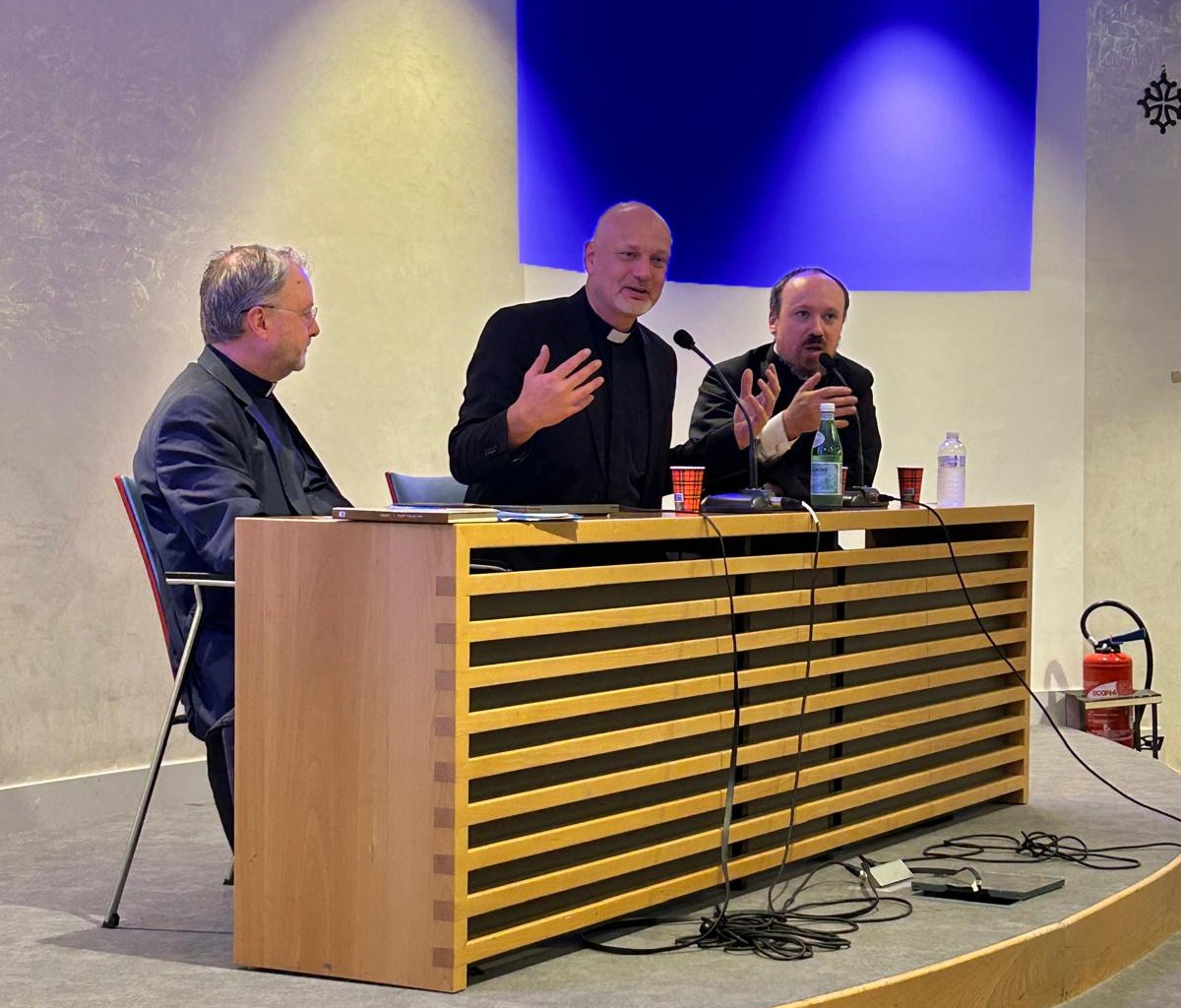 Friends of St. James Meet in Paris
Friends of St. James Meet in Paris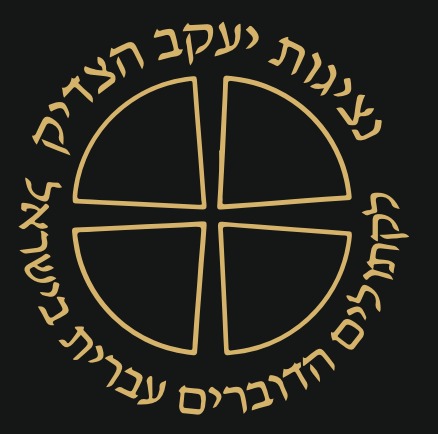 Subscribe to Our Newsletter
Subscribe to Our Newsletter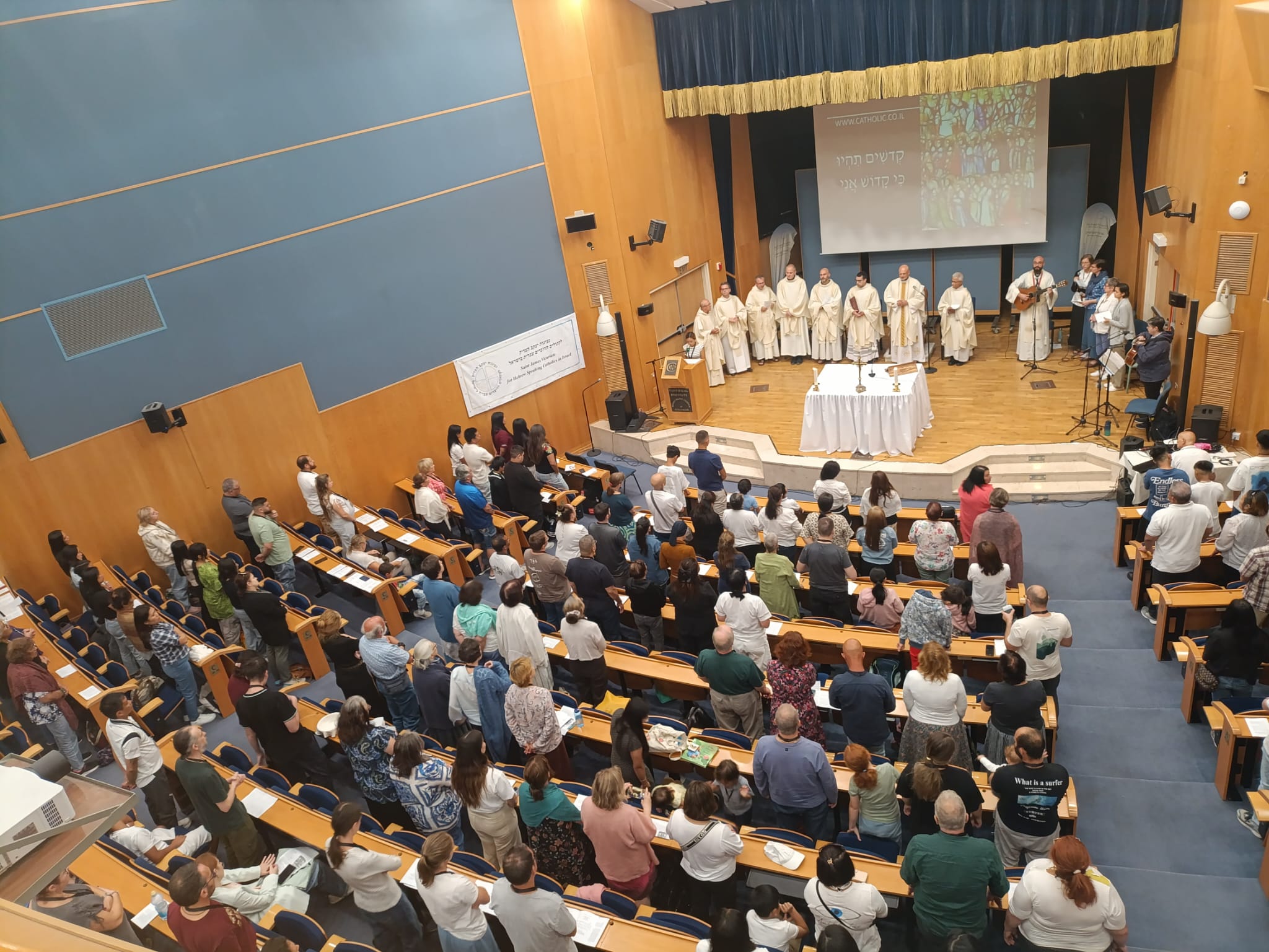 Yom HaKehilot on Solemnity of All Saints in Jerusalem
Yom HaKehilot on Solemnity of All Saints in Jerusalem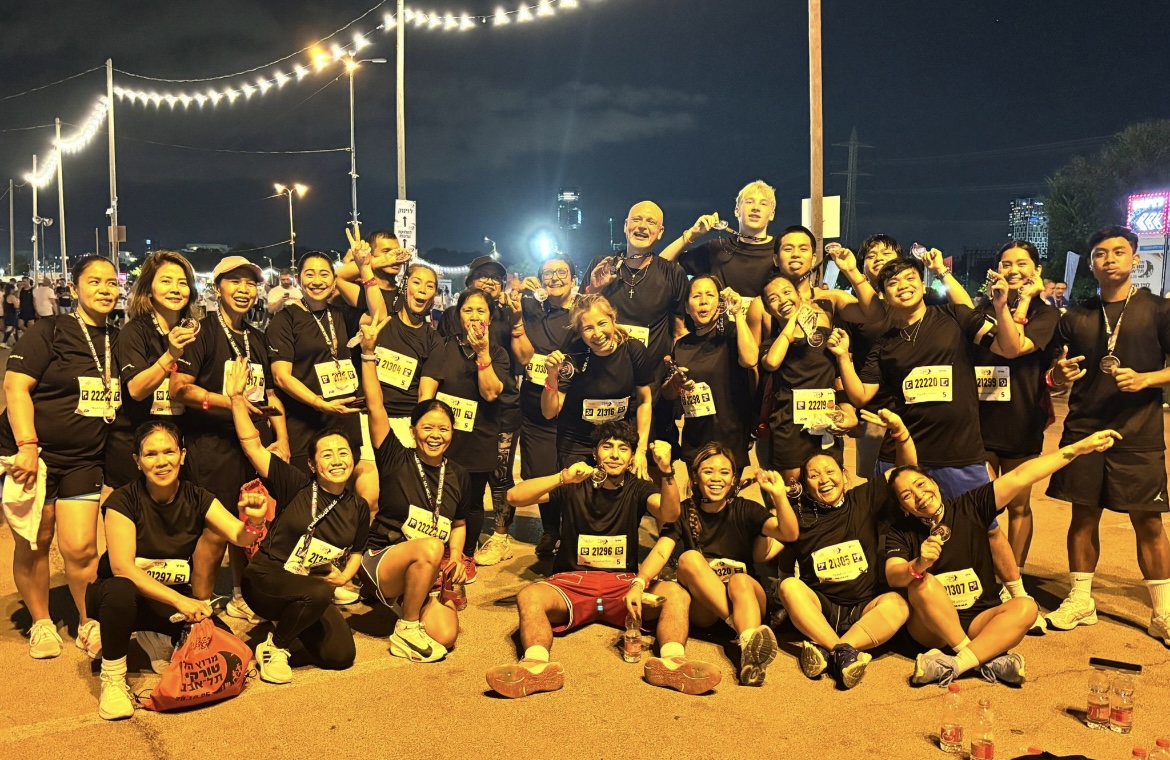 Night Run Tel Aviv 2025
Night Run Tel Aviv 2025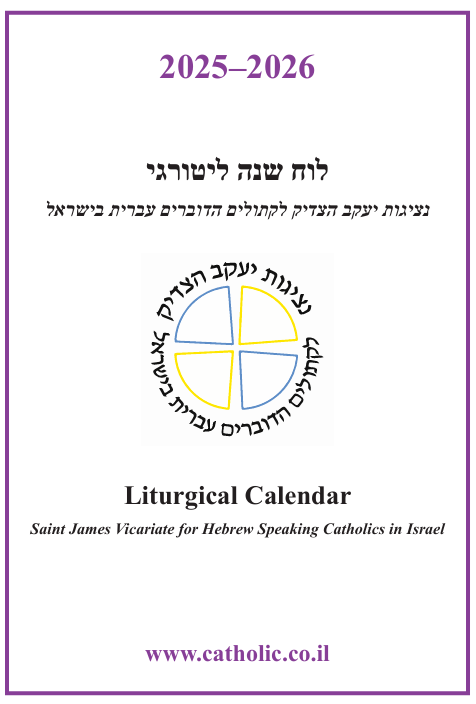 New Liturgical Calendar of St. James for 2025/26
New Liturgical Calendar of St. James for 2025/26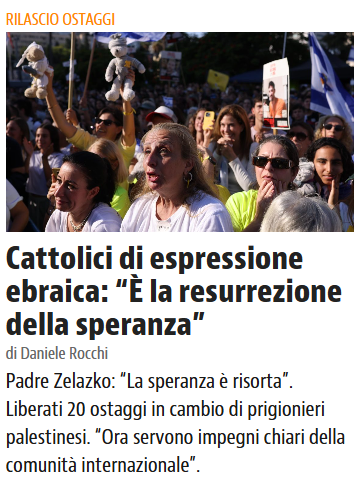 The Release of the Hostages is also the Resurrection of Hope
The Release of the Hostages is also the Resurrection of Hope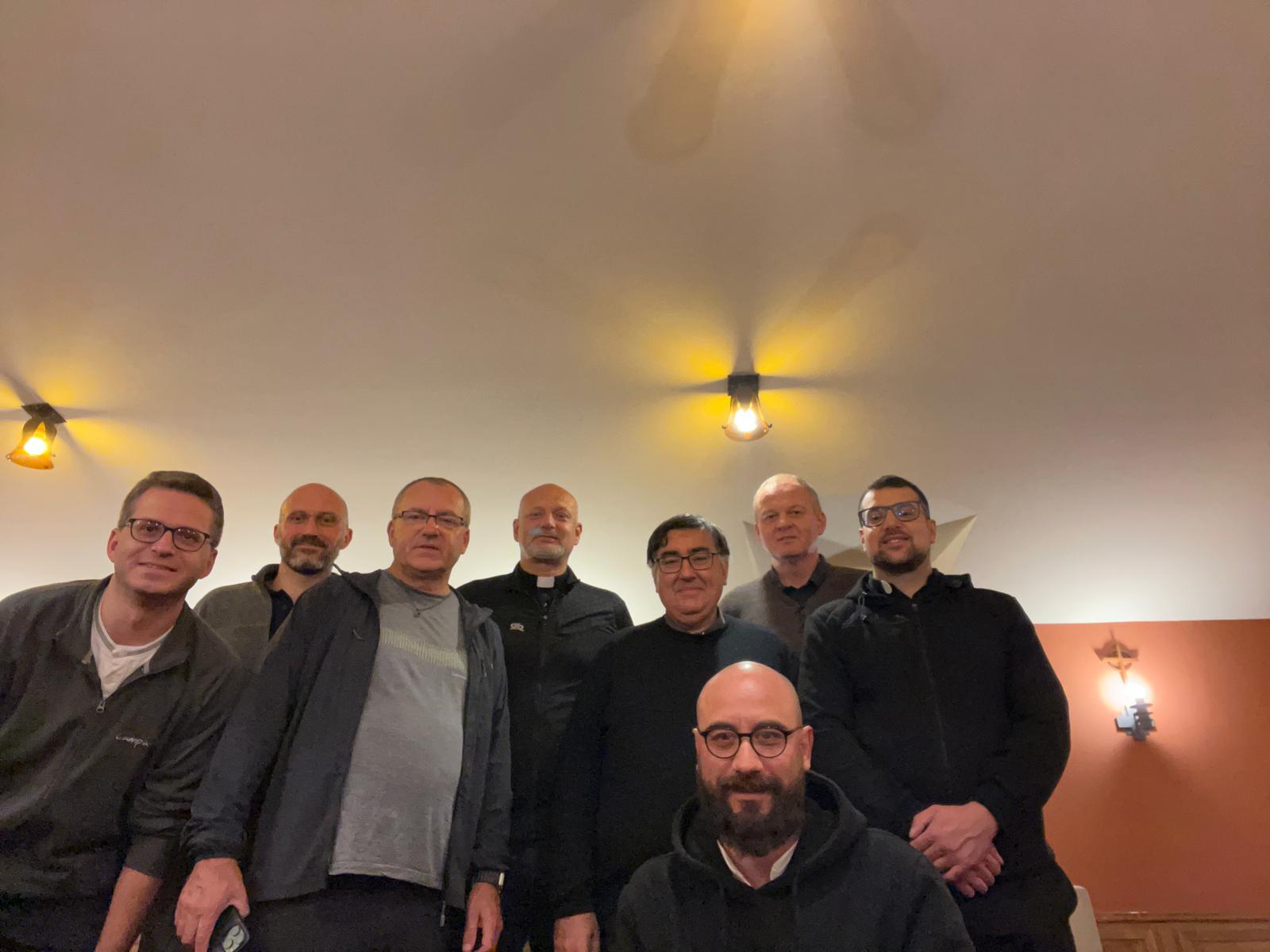 Spiritual Retreat for Priests of the Vicariate
Spiritual Retreat for Priests of the Vicariate